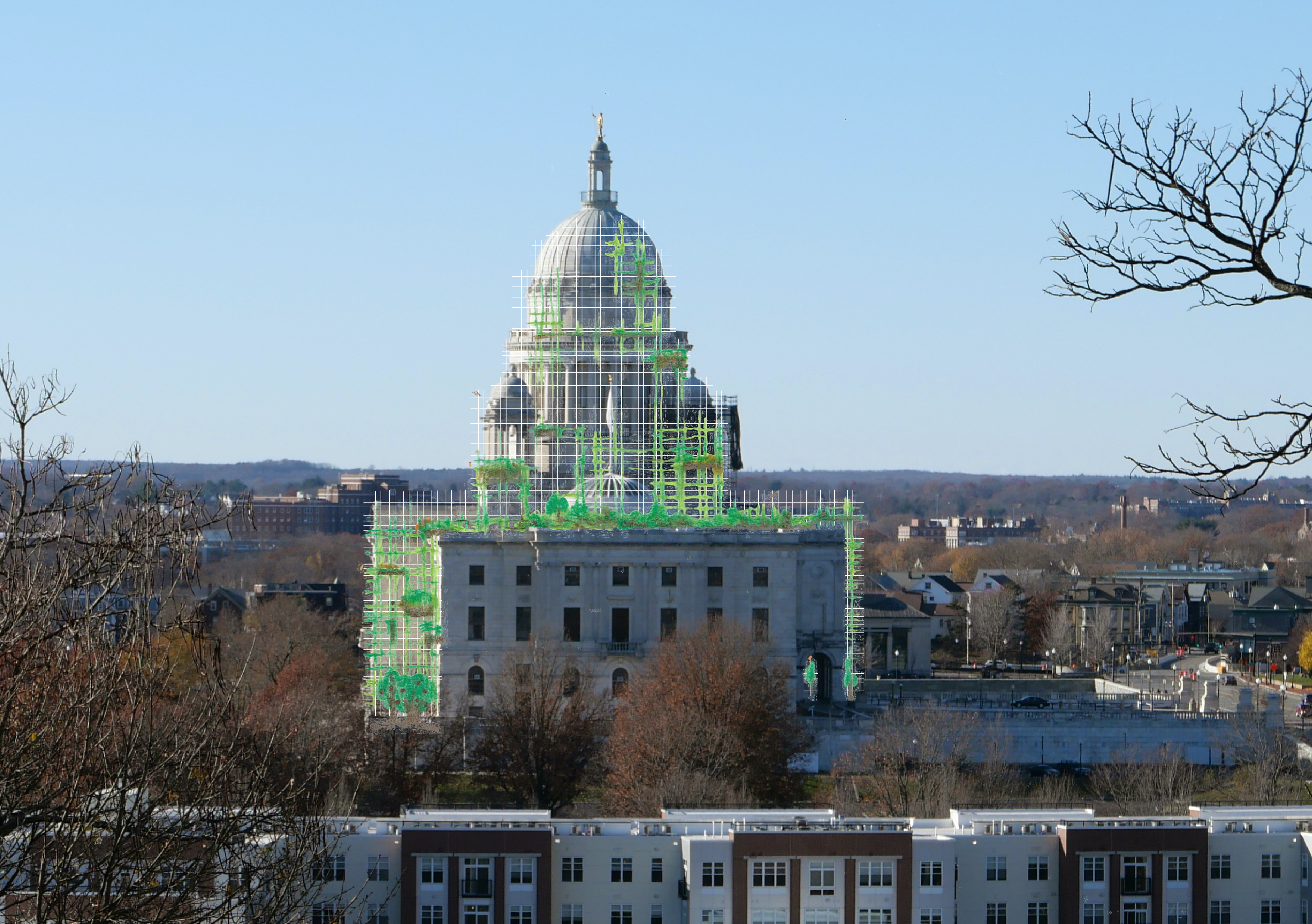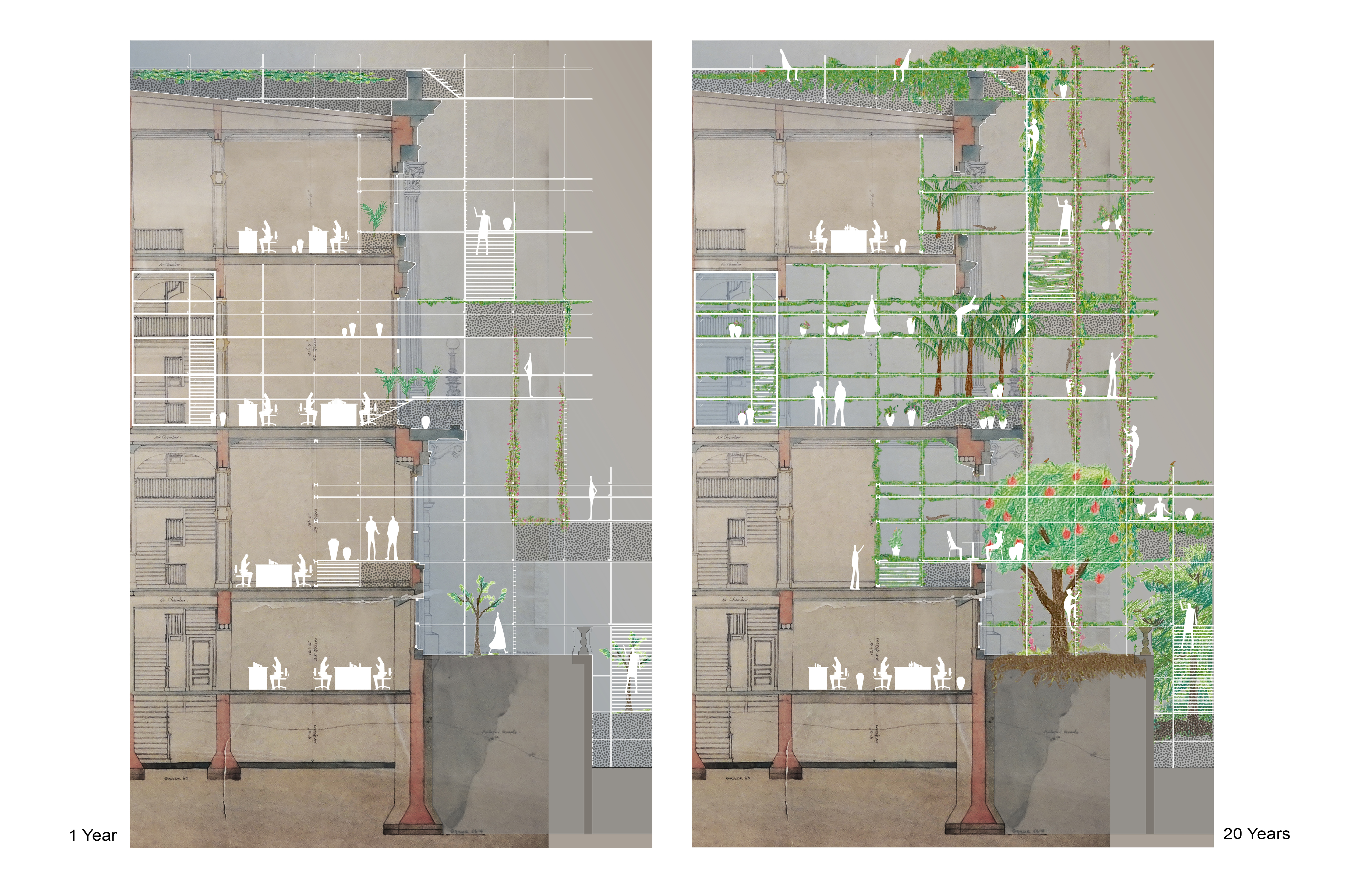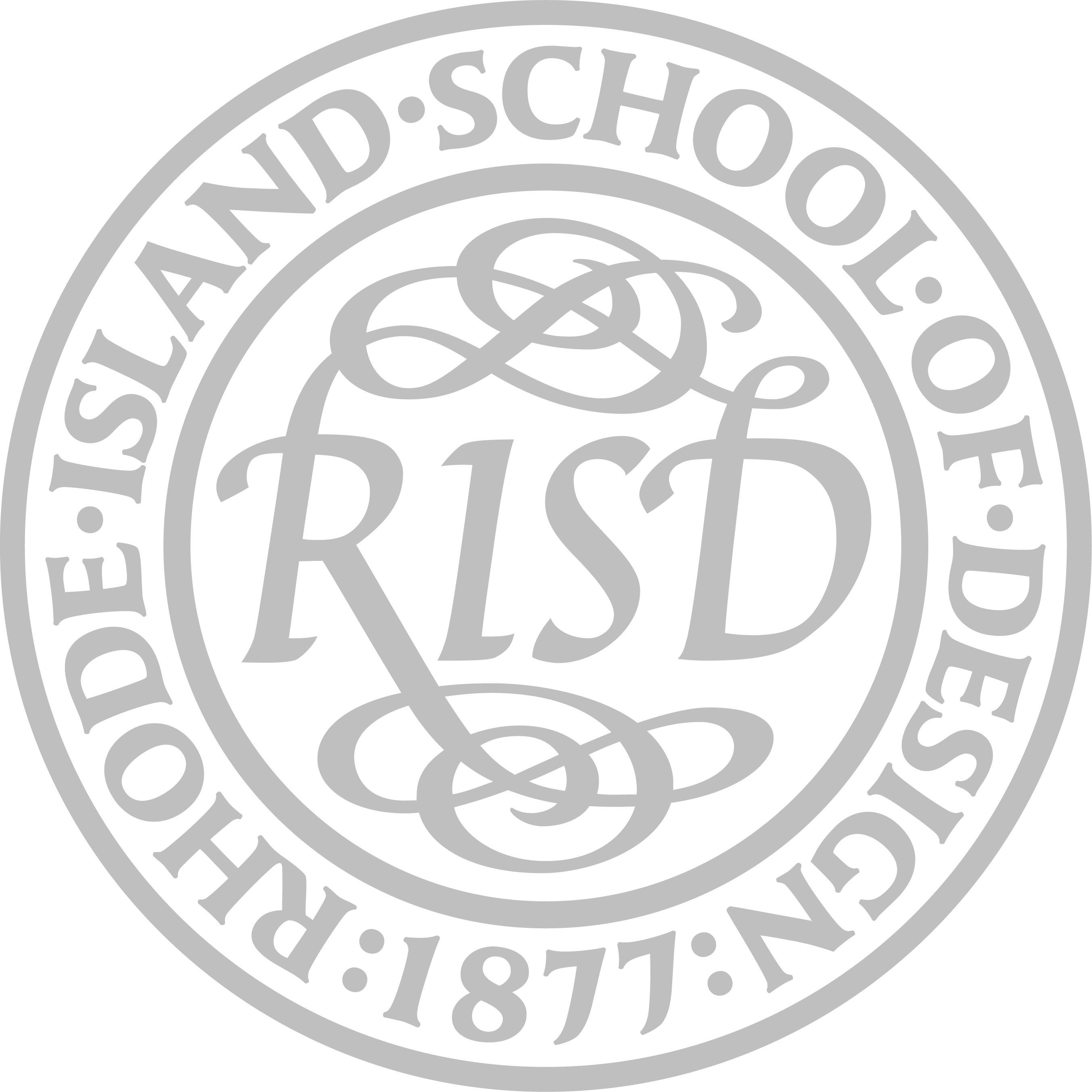Germination
Decenter Humanity’s PlaceJiayi Wang


The Rhode Island State House is a classically-inspired, marble building that sits
imposingly on Native land. The desire to keep this historic building “seemingly
perfect” freezes it in the 19th century, when it was designed, separates it from the
surrounding neighborhoods, and renders it lifeless. Instead of striving for austere
perfection, my proposal aims to embrace imperfection and foster diversity. By
harnessing the power of nature, my intervention deconstructs the architectural
power of the State House and uses the resilience of the natural world to remake
it into a living, breathing building that represents the full diversity of the people to
whom it belongs.
I propose to create a well-balanced rewilding that will transform the building and the people who work within it. Scaffolding on the building’s exterior will support growth on the façade, roof, and eventually inside the building itself. Elected officials and members of the public will benefit from a more dynamic space that invites interaction. Over time they will become more attuned to the nature around them, caring for plants, harvesting their fruits, and learning about new species. Across the grounds, scaffolded tunnels and bridges will extend the rewilding by connecting adjacent, formerly isolated, green spaces. Over time, the natural world - plants, insects, animals, people - will overtake the man-made world, shrinking the artificial spaces until only the most essential workspaces remain. The superfluous spaces will be slowly recaptured by plants, insects, animals, people – in short – nature.
I propose to create a well-balanced rewilding that will transform the building and the people who work within it. Scaffolding on the building’s exterior will support growth on the façade, roof, and eventually inside the building itself. Elected officials and members of the public will benefit from a more dynamic space that invites interaction. Over time they will become more attuned to the nature around them, caring for plants, harvesting their fruits, and learning about new species. Across the grounds, scaffolded tunnels and bridges will extend the rewilding by connecting adjacent, formerly isolated, green spaces. Over time, the natural world - plants, insects, animals, people - will overtake the man-made world, shrinking the artificial spaces until only the most essential workspaces remain. The superfluous spaces will be slowly recaptured by plants, insects, animals, people – in short – nature.



